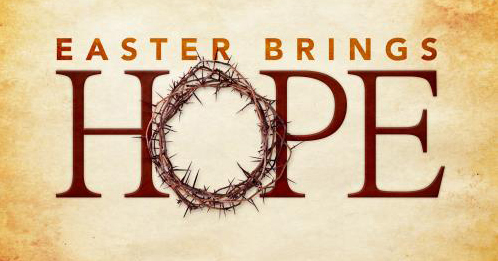
22 Apr April 2024 Reflection – Michael McFarland SJ
The Hope of Easter
In summing up this year’s Lenten retreat, with its theme of Hope, Fr. Christopher Staab, SJ, a faculty member in spirituality at the Gregorian University, pointed out that for us Christians, hope is not just a concept or an attitude, but it is above all a person, Jesus Christ, and our relationship with him. It is his resurrection, the conquest of sin and death leading to a new, glorified life, that allows us to see beyond all the suffering and loss we experience to the promise of a better future filled with light and joy in unending life. This is the ultimate gift that God, in God’s infinite mercy, offers to all struggling, sinful humanity.
This was brought out in a beautiful Easter greeting from Rabbi Dr. Abraham Skorka, a senior research fellow for Jewish studies and Jewish-Christian relations at Georgetown University and a longtime friend of Pope Francis, dating back to their time together in Buenos Aires, in L’Osservatore Romano, the Vatican’s flagship publication run by the Jesuits. Rabbi Skorka recounts the long history of God’s people being punished for their infidelity, yet God in God’s mercy brings them back to life, restoring them and giving them another chance. This includes the story of the destruction of sinful humanity in the flood, with the preservation of just a small remnant, Noah and his family, through the arc. Another example is the brutal exile of Israel at the time of the Babylonian Captivity, followed by the promise, given through the prophet Ezechiel (Ch. 37), that like dry bones scattered across the plain, they would be reassembled, given flesh and brought back to life, as happened during the reign of the Persian King Cyrus. Rabbi Skorka then went on to note the close connection with the Christian promise of Easter:
This dynamic found in the Hebrew Bible can in some ways be applied to the Easter story of Jesus. Its essence, it seems to me, is that God’s mercy will redeem humanity from the injustices and transgressions that it repeatedly commits. Humanity, despite its inability to escape from the vicious cycles of injustice and cruelty that imprison it, will be redeemed through the help of God. The human family will experience a new life of freedom. This hope is shared by Jews and Christians alike….
One message of the Christian Easter, which has its roots in the Jewish Passover, is that God will bring about new life despite the terrible anguish that overwhelms those who are suffering. May this conviction encourage many during this Easter season and also during the Passover season, which this year, because this is a Jewish lunar leap year, unusually is observed almost an entire month later. We Jews and Christians are people of hope.
This is another reminder of how deeply entwined our religious traditions are and of the importance of the work of the Cardinal Bea Centre at the Gregorian University and the Jerusalem Center of the Biblical Institute to bring Jewish and Christian scholars and students together to explore the riches of our common traditions and deepen our understanding of and respect for one another.
None of this is to deny the reality of the violence, suffering and insecurity in Gaza and in Israel and elsewhere in the Middle East, as well as in Ukraine, Haiti and many other places, not to mention the many trials we all face. It is rather to affirm that, as terrifying as the dark forces underlying these tragic situations are, God’s power and mercy are far greater and will bring good out of evil and raise up new life from the ashes of destruction. May this divine hope sustain you and give you much joy as we celebrate this beautiful Easter season.
Michael C McFarland, SJ
President, Gregorian University Foundation



